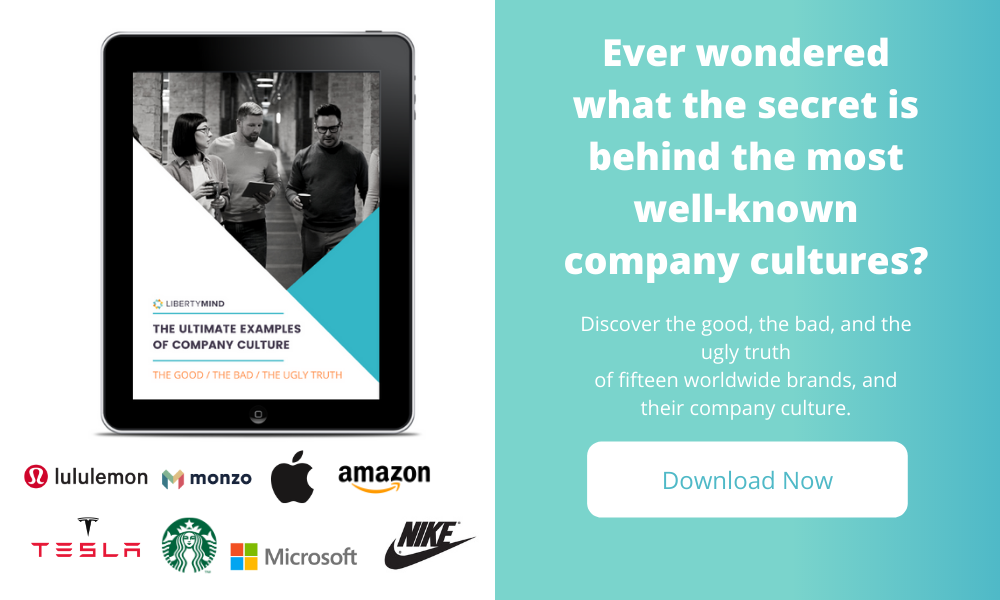Zappos - The Culture Everyone Wants to Copy
“WOW” – a simple yet powerful, three-letter word that’s hard to miss as it flashes across the company’s About page. It immediately gives us an indication of how Zappos positions itself on the market: “the brand with the wow factor”
And it’s not just wanting to WOW in business. Zappos company culture reputation supersedes what it sells.
Judging from their bio (“a service company that just happens to sell ________.”), it’s evident that Zappos wants to be known as much more than just your average shoe retailer, and they are.
While the company has a strong customer-centric message, the biggest thing they pride themselves on is its fun and innovative company culture.
According to Zappos, they are striving to “deliver happiness through the four Cs: Commerce, Customer Service, Company Culture and Community”.
But are they really?
Tony Hsieh - The Heart and Soul of Zappos
Zappos’ origin story begins in 1999, in the era of the so-called Y2K bug which, at the time, threatened people’s way of life as they knew it back then. Remember when that was our biggest threat to society?
However, for some creative and innovative minds, including Zappos founder Nick Swinmurn, it also meant a once in a lifetime opportunity to dream big, aim for the stars and create something bold and new – and so Zappos was born.
In 1999, Swinmurn partnered with Tony Hsieh who first joined Zappos as an advisor and investor, then chief executive in 2001; in 2010 he eventually became CEO of the company after helping Zappos.com blossom into one of the most successful online companies ever, starting from nearly ground zero. He was a true visionary with one particular goal in mind: for companies to focus not only on the needs of their customers but the happiness of their own employees’ as well.
Just a year after Amazon bought Zappos for $1.2 billion in 2009, Hsieh published his best seller book, Delivering Happiness, explaining their personal and professional approach at Zappos as a goal “for our employees to think of their work not as a job or career, but as a calling”. In his book, Hsieh argues how company culture and employee happiness are sustainable means to having a business of passion, profits and purpose.

Today, Zappos boasts on its website the many milestones reached over this period with some highlights, including opening its first fulfilment centre, housing 100 customer service staff, moving to a Holacracy model as well as expanding its inventory with brands like New Balance and Nike.
A particularly important milestone not included in the list – perhaps because it is not a milestone or destination but rather an ongoing goal – is their aim to show the world of consumers and businesses that they do not have to choose between people and profits. Based on their belief that it is possible for customers and employees to be simultaneously satisfied and fulfilled, Hsieh’s idea still serves as the foundation and one of the core values of Zappos’ company culture today.
Getting To The Core of Zappos’ Values
Company values are unequivocally essential in any successful business and are a primary step a founder should make in establishing their business model.
Lived company values contribute to how a business is viewed not only among the public but inhouse.
Further hitting home an idea of community among employees, Zappos gave its staff the opportunity to have their say as to what the company’s core values should be. They were narrowed down to the following 10, which have been in place since 2006:
- Deliver WOW Through Service
- Embrace and Drive Change
- Create Fun and A Little Weirdness
- Be Adventurous, Creative, and Open-Minded
- Pursue Growth and Learning
- Build Open and Honest Relationships With Communication
- Build a Positive Team and Family Spirit
- Do More With Less
- Be Passionate and Determined
- Be Humble
From the outside looking in, we can come to a conclusion from these values that Zappos views the importance of delivering excellent customer service and a healthy community in equal measure. Perhaps the key to success lies in company culture after all?
Taking culture seriously from the start
The Zappos interview process has become almost famous, and many companies now replicate their recruitment and onboarding because it delivers such an impact in instilling company values from the start.
According to former Zappos HR Director Rebecca Henry, the recruitment process is more like a courtship than a HR process. It’s dating that person, before jumping straight into the marriage.
Implemented in 2015, all prospective employees face not one but two interviews; one for business and another for company culture, in order for the company to make sure that they truly are a match made in heaven.
The culture test is where prospective employees will meet many other members of the Zappos team that they’ll be working with. It’s a social test for everyone – can we all work together?
Taking things a step further in true Zappos style. New recruits are offered $3,000 to leave the company. Yes, they’re asked if they want to leave!
The test here is to understand if people are truly committed to the company.
According to former CEO Tony Hsieh, only 3% of people take the money. The other 97% take the job.
This may all sound extreme, but when you take into account how much time and money goes into recruitment, and how much Zappos have invested in their company culture, they are taking no risks of adopting a bad hire.

Glassdoor Reviews: A look behind the veil
Glassdoor is by no means a perfect litmus test to understand what’s truly going on in a company culture, but it gives a small insight into the things people value, and where things may have opportunities for improvement.
I headed to Glassdoor to see what former and current employees have to say about Zappos’ company culture.
Out of 512 reviews, 39 included “work environment”, mostly in a positive light while 34 other reviews included “Holacracy”, mostly in a negative light.
From the thread, it becomes clear that Holacracy was a sticking point in the culture, and this is something that’s been well-documented by both Zappos and the media.
Aside from Holacracy, the reviews for Zappos culture make it one of the best places to work in the US.
A Shift: To Holacracy and Back?
If you’re intrigued about Holacry, I shared more about my experience of Holacracy training on a blog, but I feel it’s important to dive deeper into this new way of working.
Holacracy.org describes Holacracy as “a management practice that’s designed for how we work today. It transforms outdated command hierarchies into agile, self-organizing networks.”
Zappos adopted this new way of working in 2014, believing that as they expanded, their relationships with customers would improve by cutting through the levels of management. Employees would have agency to make decisions, quickening resolution times and providing teams with a sense of ownership of their work and assuredly a feeling that they are trusted and their opinions matter within the company.
In 2016, Forbes magazine issued an article stating that although Holacracy obviously had some flaws, it most likely will save the future of business.
By all means, adopting any new way of working is not going to be an easy ride, and Holacracy itself is not perfect. Again, it’s simply another way of working that can create far more agility than traditional organisational models.
Fast forward to today, Zappos hasn’t updated its website with any new insights into their adopted Holacracy model and there are rumours that the company has quietly backed away from using the system. However, they are reports they are using a decentralised approach, but just not specifically Holacracy in its pure form.
Intrigued about Holacrcy? – You can listen to my podcast with former CEO Robin Roth from Traidcraft and how they implemented Holacracy.
The Power of WOW
In 2019, Tony Hsieh, together with the employees of Zappos, published a book (The Power of WOW – How to Electrify Your Work and Your Life by Putting Service First), in which “Zapponians from every part of the business share powerful stories and lessons that they have learned in business and life”. In the book Zappos prides itself on becoming a company founded entirely on community, fun, and a strong company culture made up of loyal, hardworking, and like-minded employees.
In another publicity Youtube video, various members of Zappos staff drive home a unified message that says each and every employee has the ability to affect a company in both a positive or negative way, and that the hiring process shouldn’t be taken lightly.
Zappos undoubtedly wants us to believe that they consider their staff the most valuable resource, even over product. And, although arguably the company itself needs to establish a company culture, it is the people themselves, after all, that will dictate the tone, morale and values of any successful company.
Want your culture to have just as much impact? – Contact me to discover how to establish a co-created culture with purpose.










